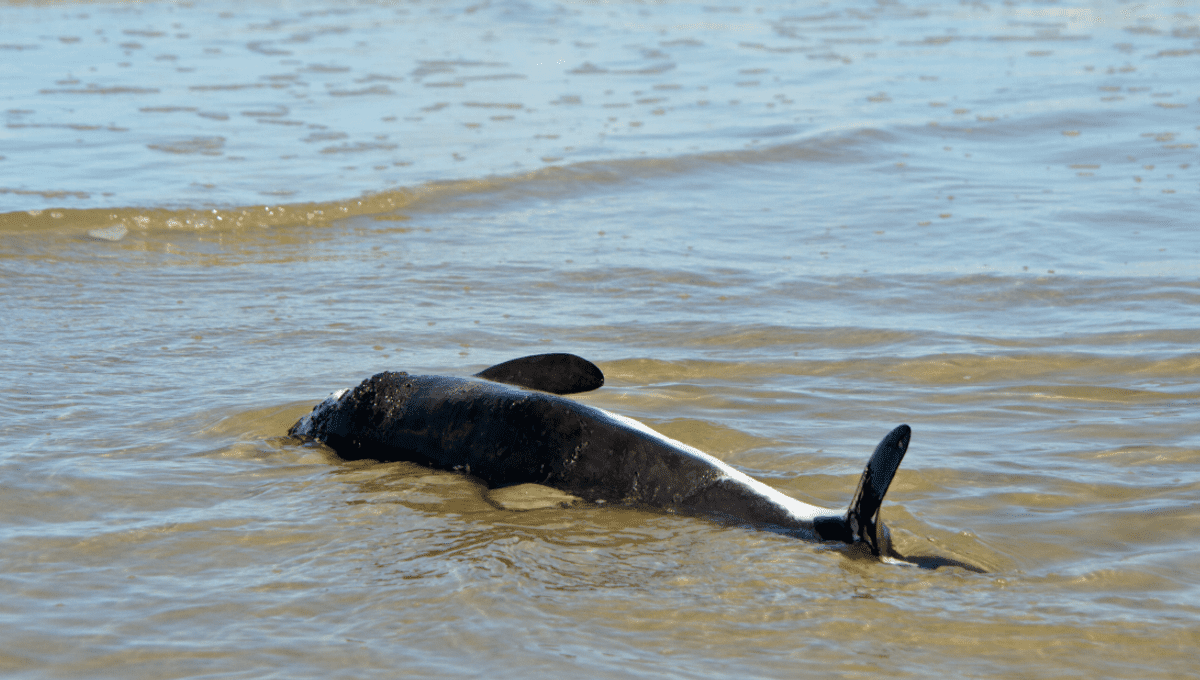
For the first time ever, wild cetaceans have tested positive for avian flu, also known as bird flu. The contagious disease typically infects wild aquatic birds and domestic poultry, but a recent and particularly virulent strain has been popping up in a wide range of species, including a dolphin in Florida and a porpoise in Sweden.
The world’s first case of bird flu in a porpoise was detected after a male stranded on a beach in Sweden back in June. It was alive, but later succumbed to the disease which showed up in several of its organs.
A bottlenose dolphin also tested positive for the same virulent strain of bird flu after being found dead in a canal in Florida. A necropsy was performed that revealed swelling and inflammation around the cetacean’s brain, and so samples were sent for testing.
Investigations retrieved a virus belonging to clade 2.3.4.4b of the Eurasian H5 viral lineage, HPAIV, which matched that found in the harbor porpoise. It’s expected the dolphin contracted the illness after interacting with a wild bird that was infected with or died from the bird flu strain.
So far these two reports are the only known cases of bird flu in cetaceans, but with the current spread of bird flu among North American and European birds being so widespread, it’s possible more cetaceans or other species could be infected. As for spread among humans, there was a case of human bird flu detected earlier this year, but the risk of infection (for now, at least) remains low.
“The virus has some features that make further study and follow-up on mammalian cases important, but the virus does not currently contain the features we know are required for transmission between humans and likely other mammalian hosts,” said Dr Richard Webby, who directs the World Health Organization Collaboration Center for Studies on the Ecology of Influenza in Animals and Birds at St. Jude Children’s Research Hospital, in a statement.
In response to the world-first infections, experts are advising that anyone conducting rescue attempts or necropsies on wild cetaceans take extra care to avoid unnecessary exposure, as it’s likely there are further cases circulating in the wild.
“Our surveillance activities on a global scale are never sensitive enough to pick up the only two events of this kind,” said Webby to The New York Times. “Unfortunately, I think this is maybe just sort of a sign of what’s to come should this virus not disappear.”
Source Link: Bird Flu Detected In Cetaceans For First Time As Dolphin And Porpoise Test Positive